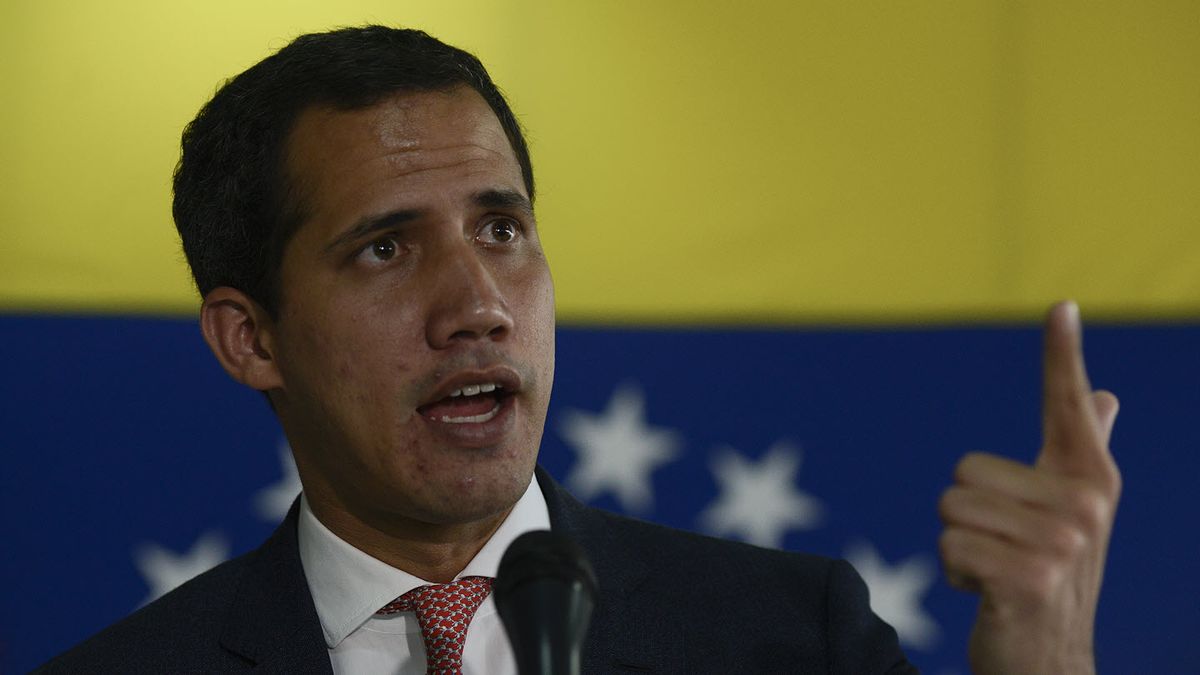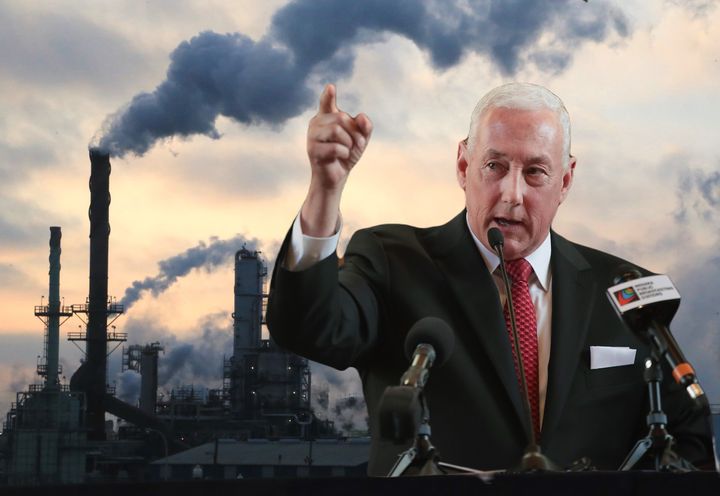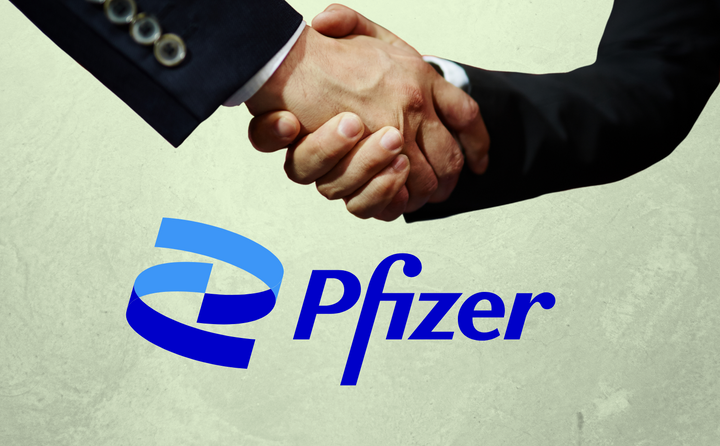Guaidó Defends Chevron, Funder of U.S. Regime Change Organization
Chevron has been a loyal donor to the International Republican Institute, a nonprofit with ties to the U.S. Republican party that has worked for decades to strengthen the political opposition in Venezuela.

In late July, as the Trump administration was deciding whether to extend a sanctions waiver allowing Chevron to operate in Venezuela, Venezuelan opposition leader Juan Guaidó pledged to protect the company’s assets in the country.
“The private ownership of the assets of Chevron Corporation and its affiliates in Venezuela, associated with the performance of hydrocarbon and non-associated natural gas activities, is guaranteed,” Guaidó’s office said in a decree posted to Twitter.
Nonetheless, the decree warned, if the Trump administration did not extend the waiver it could “allow the illegitimate regime of Nicolás Maduro to take control of or expropriate the company’s assets.” The decree, which is signed by Guaidó, also states that if sanctions were then lifted, Guaidó’s government would “adopt all the measures that will allow Chevron Corporation and its affiliates in Venezuela to restart activities.”
Three days after Guaidó issued his statement, the Treasury Department announced that it would extend Chevron’s waiver for 90 days.
California-based oil giant Chevron has operated in Venezuela since the 1920s. The company works in partnership with affiliates of Venezuela’s national oil company, Petróleos de Venezuela, in several onshore and offshore oil and gas exploration and production projects. In 2018, Chevron produced a daily average of 42,000 barrels of crude oil and 9 million cubic feet of natural gas in Venezuela. Chevron is the last major American oil company operating in Venezuela, after ExxonMobil and ConocoPhillips quit operations in the country in 2007.
Guaidó’s support of Chevron’s operations in Venezuela comes after the company has donated for decades to the International Republican Institute (IRI), an American nonprofit with ties to the Republican party that has worked to strengthen political opposition to Venezuela’s socialist government.
IRI, which describes its mission as “advancing democracy and freedom” abroad, has worked in Venezuela since shortly after the election of President Hugo Chávez in 1998 to train opposition party members on how to defeat the socialist government, according to a report from the Washington Post.
According to the organization’s annual reports that Sludge was able to access, from 1995 to 2006, Chevron donated an unspecified amount to IRI every year, and in some years belonged to the “Chairman’s Circle,” indicating that it gave among the most of any corporation, foundation or individual. In recent years, Chevron has disclosed donating to the IRI in lobbyist contribution reports filed with the House of Representatives. Chevron has given at least $85,000 to the IRI since 2015 in donations that appear to be connected to the organization’s annual awards dinner, at which Republican politicians and administration officials are honored. Honorees at this year’s awards dinner included Senate Majority Leader Mitch McConnell (R-Ky.), Venezuelan Ambassador Carlos Vecchio, and U.S. Special Representative for Venezuela Elliott Abrams.
The Guardian called Abrams the “crucial figure around the coup” that resulted in President Chávez being ousted from power for 47 hours in 2002. At the time of the coup, Abrams was a national security adviser in the Bush administration.
IRI receives a large portion of its funding from government agencies, including the U.S. State Department and the U.S. Agency for International Development, as well as from the National Endowment for Democracy, a U.S. government-funded nonprofit that has been a principal funder of opposition groups in Venezuela.
Guaidó, whose political ascent has roots in the student movement that the IRI helped foment, has called for opening up Venezuela’s oil resources to private investment as part of his economic plan.
IRI board member Sen. Marco Rubio (D-Fla.) said on Twitter that for the sake of U.S. workers Chevron and Texas-based Valero should “begin working with administration of President Guaido & cut off illegitimate Maduro regime.”
“I think you just accidentally said the quiet part loud marco,” a Twitter user replied.
President Trump’s national security adviser John Bolton said on Fox News in January that the administration was “in conversation with major American companies now that are either in Venezuela, or in the case of Citgo here in the United States.”
“I think we’re trying to get to the same end result here,” Bolton said. “It will make a big difference to the United States economically if we could have American oil companies really invest in and produce the oil capabilities in Venezuela.”
Timothy Michael Gill, assistant professor of sociology at the University of North Carolina at Wilmington, describes the IRI’s activities in Venezuela in his paper on the history of U.S. “democracy assistance” in socialist Venezuela.
In 2000, the IRI established an office in Caracas and worked to build relationships with political opposition leaders. It then established a “Strengthening Political Parties” program to help opposition parties develop youth outreach strategies and internal governance structures. The IRI sponsored trips for politicians from the U.S. and other countries to meet with opposition leaders and student activists in Venezuela to train them on developing messages and images, and on how to craft a unified platform among the many stakeholders.
In 2002, when Chávez was temporarily removed from power by the Abrams-linked coup d’état, then-IRI President George Folsom released a statement that praised the civil society leaders who “put their very lives on the line in their struggle to restore genuine democracy to their country.” In 2006, the IRI helped Manuel Rosales in his campaign against Chávez, bringing in technical experts to help with polling and government/political party relations, according to a diplomatic cable published by Wikileaks states.
In an April Facebook post, chairman of the IRI Board of Directors Sen. Dan Sullivan (R-Alaska) urged America to stand with Guaidó as he works to topple Maduro.
“America stands firmly with the Venezuelan people who want democracy and who are standing up against Maduro,” Sullivan wrote. “America should continue to stand with them until freedom and democracy are restored.”
More from Sludge:




Comments ()